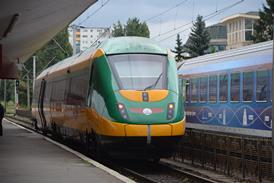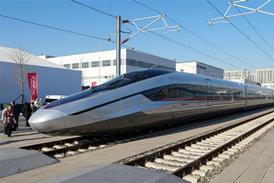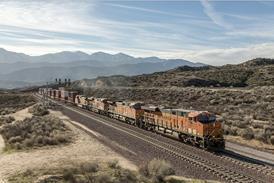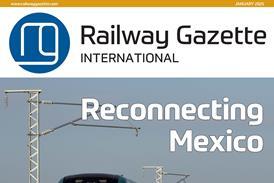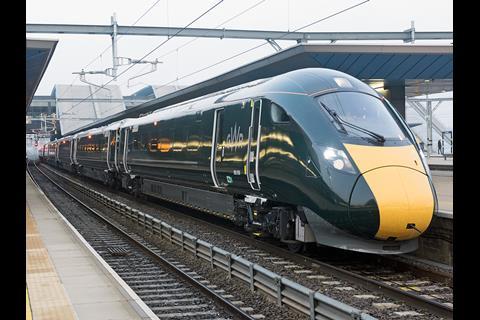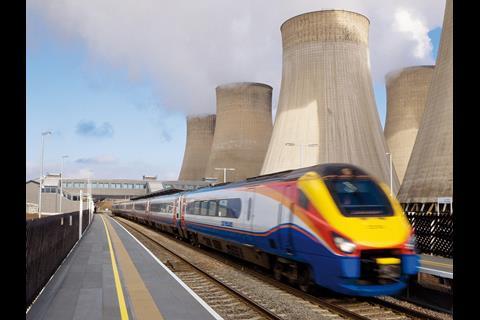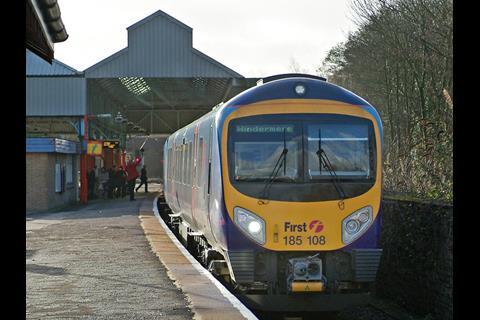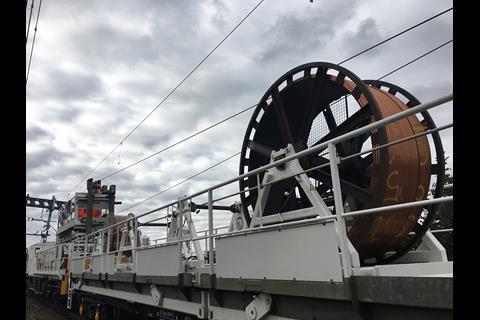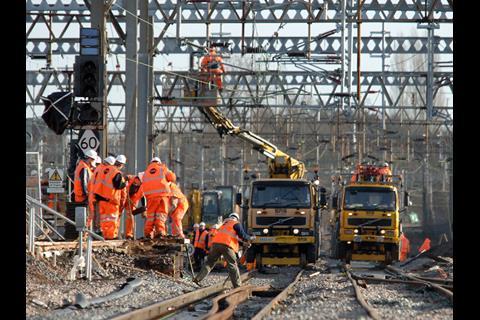UK: The National Audit Office has published an investigation into why and how the government cancelled the planned 25 kV 50 Hz electrification of the Cardiff – Swansea route, the Oxenholme – Windermere branch and the Midland Main Line north from Kettering to Nottingham and Sheffield.
The report released on March 29 concludes that the major reason for the cancellations announced by secretary of State for Transport Chris Grayling in July 2017 was affordability, with cost increases making infrastructure manager Network Rail’s investment plans for Control Period 5 (2014-19) undeliverable within the available budget. DfT calculated that cancelling the three electrification schemes would save a maximum of £105m in CP5, and avert £1·385bn of spending in CP6 (2019-24).
DfT claimed that electro-diesel trainsets would be able to provide many of the passenger benefits of electrification, with less disruption for engineering work. It anticipated the same journey time to Swansea, and London – Sheffield being only 1 min slower with bimodes rather than electric trains. However there would be higher energy costs and greater track wear, and NAO concludes that it is too early to determine whether DfT would be able to deliver the benefits without electrification.
NAO found that at the time of the decision to cancel there were no bimode trains on the market offering the performance required for MML services, although DfT expected that they could be developed.
The Secretary of State and Chancellor agreed to cancel the Windermere and MML schemes in March 2017. Windermere had risen in cost from £16m in 2014 to £35m, and the benefit-cost ratio was poor at 0·6:1. The benefit-cost ratio for the MML was 0·8:1, with the assumption that London – Sheffield passengers would use HS2 from 2033. Better ratios could be achieved with different fuel pricing and air quality assumptions, but DfT did not reassess the ratio taking into account both HS2 and fuel and air quality.
The Prime Minister asked for an updated business case for the Swansea scheme before approving cancellation. This found the benefit:cost ratio had fallen from 0·6:1 to 0·3:1, following an increase in cost from £295m in March 2014 to £433m in August 2016 and the decision to use Hitachi bimode trains on the route. As a result, cancellation of the Swansea project was approved in July 2017.
The cancellation of all three projects was publicly revealed on July 20, following the general election which had been announced on April 17 and held on June 8.
Welcoming the publication of the NAO report, Chair of the House of Common Transport Select Committee, Lilian Greenwood said it was ‘deeply frustrating’ because it showed the MML decision had been taken in March 2017 but Secretary of State for Transport Chris Grayling had ‘failed to mention it to the wider world, not just until the general election was over, but until the last day before recess in July.’ Greenwood said Grayling had been ‘less than candid with the Committee when we sought to investigate this’.
The environmental and future financial implications of cancellation should have been fully costed before the decision was made, Greenwood added.
Shadow Transport Secretary Andy McDonald described the cancellations as ‘delusional and disastrous’ and said a future Labour government would ‘reinstate the full electrification programmes on Midland Main Line and Great Western.’
A Department for Transport spokesperson said ‘as this report makes clear, we are focused on delivering better trains and services to passengers more quickly, at better value for money for the taxpayer, without the significant disruption to services that electrification can cause.’

